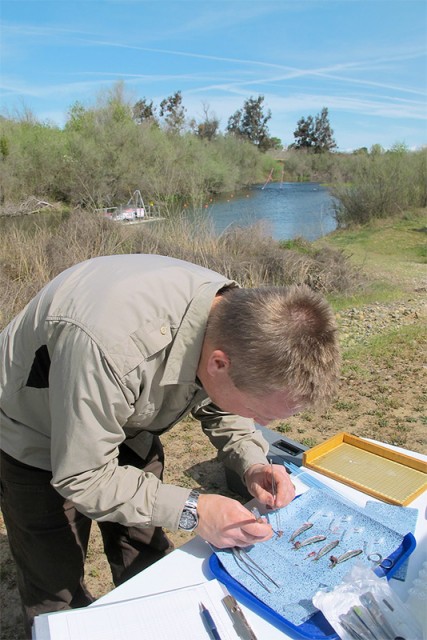Wednesday April 17, 2013
Even fish need regular health checkups. Keeping track of the health and physiological condition of salmon smolts outmigrating from the Central Valley is an essential assignment for the biologists at the U.S. Fish and Wildlife Service California-Nevada Fish Health Center. Fortunately, FISHBIO’s rotary screw traps provide easy access to outmigrating salmon on all the San Joaquin Basin tributaries. Multiple times each spring, we help the USFWS obtain samples of wild smolts captured in our traps. The USFWS biologists carefully dissect the smolts, separate samples of tissue from organs, and preserve the tissues in vials which they then process at their laboratory based at the Coleman Hatchery.
The laboratory examines the specimens for a host of possible parasites and diseases. One of the more detrimental diseases afflicting salmonids is Proliferative Kidney Disease (PKD), caused by infection with the myxozoan parasite Tetracapsuloides bryosalmonae. The parasite species name comes from its ability to infect colonial animals called bryozoans, as well as salmonids. The parasite causes fish kidneys to become inflamed, and often leads to death in wild Chinook salmon, rainbow trout, and farmed salmon (Skovgaard and Buchmann 2012).

